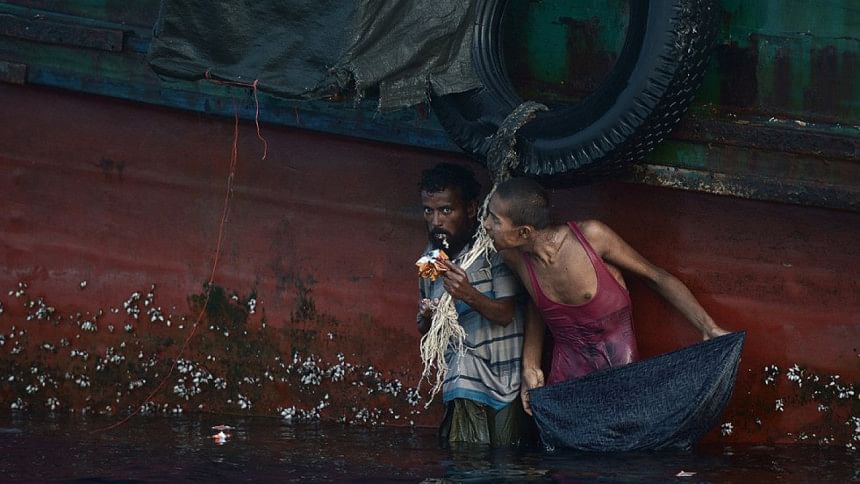Time to act

In an op-ed piece I had written for this daily shortly after the historic elections in Myanmar in November 2015, I had expressed my fear that among all the euphoria that followed Aung San Suu Kyi's thumping victory, the fate of the disenfranchised and persecuted Rohingyas in Myanmar may continue to remain uncertain if the elected leadership fail to take concrete remedial steps in earnest. A year later, my fears are turning out to be true and in a worse form than what one would have thought.
The history of the sufferings of the Rohingyas in Myanmar is all too well known and is well documented. That the community had been socially marginalised and politically persecuted for long is also an established fact. One had been guardedly optimistic that a democratically elected government would make a sincere effort at rectifying the situation. However, as recent events show, things on the ground have turned for the worse; today the Rohingyas are being subjected to a systematic cycle of military repression that borders on ethnic cleansing, one that should bring back memories of the horrors the world witnessed helplessly in the Balkans in Europe over two decades back. Sadly, the victims in both cases have been Muslims.
Even in the lead up to the elections, Nobel Peace laureate Aung San Suu Kyi's unnerving silence on the Rohingya situation was indication enough that she was not ready to get on the wrong side of the hardline Buddhist clergy and those inside her own National League for Democracy Party. Least of all, she could not risk alarming the country's military that has ruled the country for well over four decades and who are at the root of this systematic persecution of Rohingyas. The best that one could have hoped for was a reduction of the tension until the elected lot got time to consolidate their position in the state structure. Instead, what one is witnessing now is a slide towards anarchy by the state's security forces where murder, mayhem, arson, rape, looting of the Rohingyas is assuming alarming proportions. Even the appointment of the UN Secretary General's special envoy on the Rohingya issue in the person of Kofi Annan now looks like a futile exercise.
The international community needs to realise the fact that what is happening in Myanmar is not just a case of political persecution of a minority community; it is in fact a violent manifestation of religious fundamentalism by the majority Buddhist community. For long, the world has come to believe that Buddhism as preached by Gautama Buddha is a religion of peace. One has no reason to doubt that the great Buddha personally espoused and preached such a philosophy. But the manner in which it is being played out in Myanmar today would make the faith's founder shudder if he knew that homes are being burnt, helpless people are being murdered, women are being raped and children are being tortured, all in the name of religion. The scenario is no different from what one is witnessing in other parts of the world where the ugly face of religious intolerance, fundamentalism and radicalism is threatening the peaceful coexistence among people of different faiths. The alarming difference in the case of Myanmar though is that the perpetrators here are state actors.
While regional and global powers may want to look at the evolving political changes in Myanmar as an opening to create their own spheres of influence and a chance to exploit the economic opportunities on offer, they will be wrong to assume that such persecution of the minorities can be glanced over in their pursuit for achieving their narrow geo-political goals. Aung San Suu Kyi may have accepted the Nobel Prize for Peace, but how much she has succeeded in bringing lasting peace to the country she now leads is a question that is being asked increasingly, and not without reason. For the global community, ignoring the plight of the minorities in Myanmar, ethnic or religious, cannot be an option.
One country that has been directly affected by the policies of successive governments in Myanmar is Bangladesh, which borders Myanmar's Rakhine state where the overwhelming majority of the Rohingyas lives, and have lived for centuries. Fleeing persecution at home, large numbers of Rohingyas have taken refuge in Bangladesh over the years. At any given time, anything up to half a million Rohingyas have been sheltered in Bangladesh, only a portion of whom have been provided for by the UN's Refugee agency. Successive governments in Bangladesh have demonstrated boundless generosity in feeding, clothing and housing them, even when such generosity put strains on the country's economy and threatened social harmony. As early as 2002, the UNHCR came up with the unreasonable suggestion that the Rohingya refugees be provided employment opportunities in Bangladesh till such time the situation in their own country becomes safe for them to return. In so doing, the pundits in Geneva were unwittingly providing further incentives to the government of the day in Myanmar not to let up on their policy of persecution of the Rohingyas, and force them to flee to safer havens in Bangladesh. Not surprising therefore, that all governments in Bangladesh had summarily spurned this unworkable proposition.
The media and the civil society in Bangladesh have been fiercely critical of any incident of attacks on minority communities in Bangladesh, be it on the Buddhists in Ramu, Hindus in Nasirnagar or Santals in Gaibandha. They have also not spared the government for any perceived failure to prevent or pre-empt such occurrences. This speaks volumes for our societal commitment to a culture of pluralism and communal harmony. It is time for these players to raise their voices in a crescendo and draw the attention of the world community that what is happening in our neighbour to the East is not civilised behaviour and it must stop. The world must also be made to see the bigger picture that the Rohingya refugees, especially the youth, scorned and fleeing persecution at home, can become easy recruits for extremist and terrorist groups like the Al-Qaeda and now the ISIS. They can be easily tempted to buy the ISIS narrative that Muslims everywhere are victims of concerted injustice and must therefore strike back with vengeance. The ramifications for inaction can be far reaching and perilous. The time to act is now.
The writer is a former Foreign Secretary of Bangladesh.

 For all latest news, follow The Daily Star's Google News channel.
For all latest news, follow The Daily Star's Google News channel. 



Comments